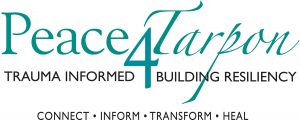The True Strength of Children
 How often have we heard, “Children are resilient”? As Dr, Bruce Perry says, “Children are not resilient; they are malleable.” (Of an object, malleable means “able to be changed in shape by force or pressure”; of a child it is used to mean “impressionable, adaptable”.)
How often have we heard, “Children are resilient”? As Dr, Bruce Perry says, “Children are not resilient; they are malleable.” (Of an object, malleable means “able to be changed in shape by force or pressure”; of a child it is used to mean “impressionable, adaptable”.)
Not too long ago it was believed that trauma was relatively inconsequential for children, as they were thought to “forget it”, or “get over it”. As Dr Perry points out, of course they “get over it”; what other choice do they have?
With the advent of the historic Adverse Childhood Experiences Study by Felliti and Anda, it became obvious that childhood traumas cast long shadows.
![[]](https://mlsvc01-prod.s3.amazonaws.com/0eb26a65501/0c3659a0-e14e-4776-bfde-b9fb36e71342.jpg)

 “A trauma-informed community takes a trauma informed approach. We understand that there are reasons for behavior. Violence does not happen randomly, but comes from verbal and emotional abuse to bullying, assault, etc. We will look at things differently through this understanding and recognize that, for example, the bully is a bully for a reason and seek to not only understand that behavior but influence and transform it as well as assist with the person who was bullied. It’s looking at the whole picture, not just a tiny piece of it. In the long term, reducing violence will create a healthier and more thriving Tarpon Springs as the many costs of trauma decrease. It’s a very long term initiative and will take many years, even several generations to realize the long term benefits.”
“A trauma-informed community takes a trauma informed approach. We understand that there are reasons for behavior. Violence does not happen randomly, but comes from verbal and emotional abuse to bullying, assault, etc. We will look at things differently through this understanding and recognize that, for example, the bully is a bully for a reason and seek to not only understand that behavior but influence and transform it as well as assist with the person who was bullied. It’s looking at the whole picture, not just a tiny piece of it. In the long term, reducing violence will create a healthier and more thriving Tarpon Springs as the many costs of trauma decrease. It’s a very long term initiative and will take many years, even several generations to realize the long term benefits.”